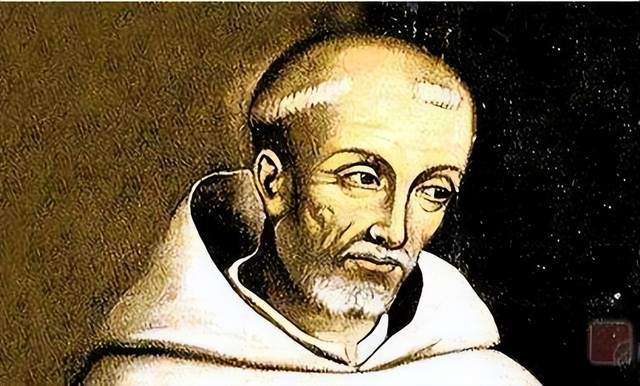European medieval philosophy: Why did rationality become the niece of faith?
Author:Liu Xiaoshang Time:2022.09.03
Today, we continue to introduce the medieval philosophy of Europe. As I introduced the three philosophers in the European century, Bo Aixiu, Loisein, Anselmo's ideological views on common phase issues. Reality, but denying its independence, Luo Silin denied the reality of the common phase, and Ansulmo must have the reality of the common phase.

After Ansulmo, the medieval philosophy of Europe entered the philosophy of the Economic Institute, and Ansurmo was also known as "the last godfather philosopher and the first philosopher in the scholar." In the medieval godfather philosophy and the philosophy of the hospital, it can be called "Christian philosophy" in general, or it can be understood that the godfather philosophy is the first stage of Christian philosophy, and the philosophy of the school is the second stage. Their division is about the 11th century AD. Their common feature is that they are trying to reconcile the contradiction between rationality and faith.
Around the 1st century to the 11th century, it belongs to the stage of the godfather philosophy. The reason why this stage is called "Godfather Philosophy" is that from the 1st century AD, Christianity has gradually spread in Europe. Some people have deep Greek cultural literacy. They are called "godfather". They combine Christian faith with Roman knowledge, laying a theoretical foundation for Christian theological doctrine. Therefore, the godfather's ideological system has become an important tool for maintaining the authority of religious rule. Their ideological system is also known as the "godfather philosophy". The rationality of the teachings such as original sin, redemption, etc.

The most representative philosopher and theologian in this period is Augustine. He put forward the famous "Trinity" idea. From the perspective of God's three in one, he explained the relationship between "God and Man" and believed that the Father and Holy Sage The child and the Holy Spirit cannot be segmented, and it is the same entity. Augustine's thoughts, both in the history of Western theology and in the history of philosophy, have a very important position. In this issue, the thoughts are more inclined to Plato's ideological system, and they mysteriously mysterious "ideas" of Plato, considering the spiritual world of truth, or the world of Plato's philosophy, is inevitable, and it is first independent and eternal existence. Essence
Since the death of the Western Roman Empire in 476 AD, Europe has fallen into war. During this time, social turmoil was uneasy, and philosophy did not develop. During this period, it was also called the "Dark Middle Ages" until 800 years later. After its establishment, Europe gradually stabilized. Since the 11th century, Western Europe has appeared in the stimulus of Arabic civilization, and a cultural rejuvenation has emerged. The philosophy of the hospital has gradually formed during this period, but the philosophy of this period is still Christian philosophy, and Christian culture still occupies still occupies The dominance status and philosophical thinking are largely served for religious rule. Therefore, some people say that medieval rationality has become the niece of faith.

But unlike the godfather's philosophical stage, the philosophy of philosophy in this period tends to accept Aristotle's thoughts. Why is it called "the philosophy of the sutra"? The philosophy of the school is the theory of professors used by the Catholic Church to teach in the Scriptures. : Period philosophy.
Unlike the godfather philosophy, the philosophy of the hospital has added a rational taste, which actually laid the foundation for the later Western rationalist philosophy. For example, on the issue of faith and rationality, they do not exclude or refuse rationality. Instead, they try to use rationality to demonstrate their faith and try to build Christian creed on logical argument. For example, during this period, the philosopher Thomas Aquina was proposed in a logical way. At the same time, the questions discussed by the philosopher of the academy also asked more about philosophy. For example, the controversy of the "common phase" issue, the 11th century French institute philosopher Aberal proposed a more systematic point of view and demonstration.
Aberlet discusses the "common problem" in a way to trace a text, and is known as the beginning of "conceptual theory". He said that according to the definition of Aristotle's "Explanation", the common phase is something that can express many things. This definition can be introduced. Common phase is a concept, a noun, not a entity, because only nouns can express many things, and no matter whether it is a single thing or a collection of things, it cannot express many things. In this way, Aberry is the only name of the discussion, but the "noun" he said is not the same as the "noun" that La Silin said before. For the two parts of voice and significance, Luo Silin emphasizes the reality of the sympathetic voice, but Aberry emphasizes the realism of common phase as meaning.
Therefore, from the perspective of Aberry, the production of common phases is based on specific individual things, and it is pointed to real and objective things. It contains our understanding. Sound and words. This view of Aberry is similar to the perspective of Bo Aixiu we introduced before. He affirmed the actuality of the common phase, but this kind of realism cannot exist independently, so this kind of realism is not the real nature of the entity. Essence

In addition, in terms of common or invisible issues, Aberl's answer is similar to Bo Aixiu. It can also be referred to as intangible aspects of its meaning, because although they are named individual things, they are not individual and limited names. Ambral also discussed the question of whether the common phase and the sensible things were separated. On the one hand, he acknowledged that Boyi's claims existed outside the senses of things, but they were understood beyond sensible things. This also solves another problem: Once the common part of the common part of the soul, it will no longer depend on the existence of sensible things. Essence In this sense, Aberry did not completely deny Plato's theory.
In addition, on the question of how the common phase is recognized, Aberry also put forward his own point of view. He believes that the common phase is a way to compare many things from people. Knowing, not awareness of the essence of things. This understanding ignores the clear things of specific things and forms a fuzzy general impression. And the common phase imagined a common and vague impression of many things. As a result, Aberla's common phase and Plato's philosophy are distinguished, because in Plato's view, the philosophy is the essence of things, and in Aber The view of Ral's view is just the common state and blurry impression of things.
After Aberl, Thomas Aquina, a well -known philosopher in the Middle Ages, appeared. What new ideological views do Thomas Aquina have? For more exciting content, we will talk about the next issue. Well, this is the content of today. If you like my content, please like the collection and continue to pay attention to me.
- END -
Xu Qingfeng and Li Jing in Nanyang aid in Nanyang, Henan -fly together at the foot of Tianshan

Nanyang Daily Special Reporter Zhao Minglu Zhang Xiwen/PictureRelativeA couple in ...
Hangzhou, Hangzhou, Zhejiang: Implement three measures to help civilized cities re -evaluation

At present, the national civilized cities re -evaluation and welcoming the inspect...